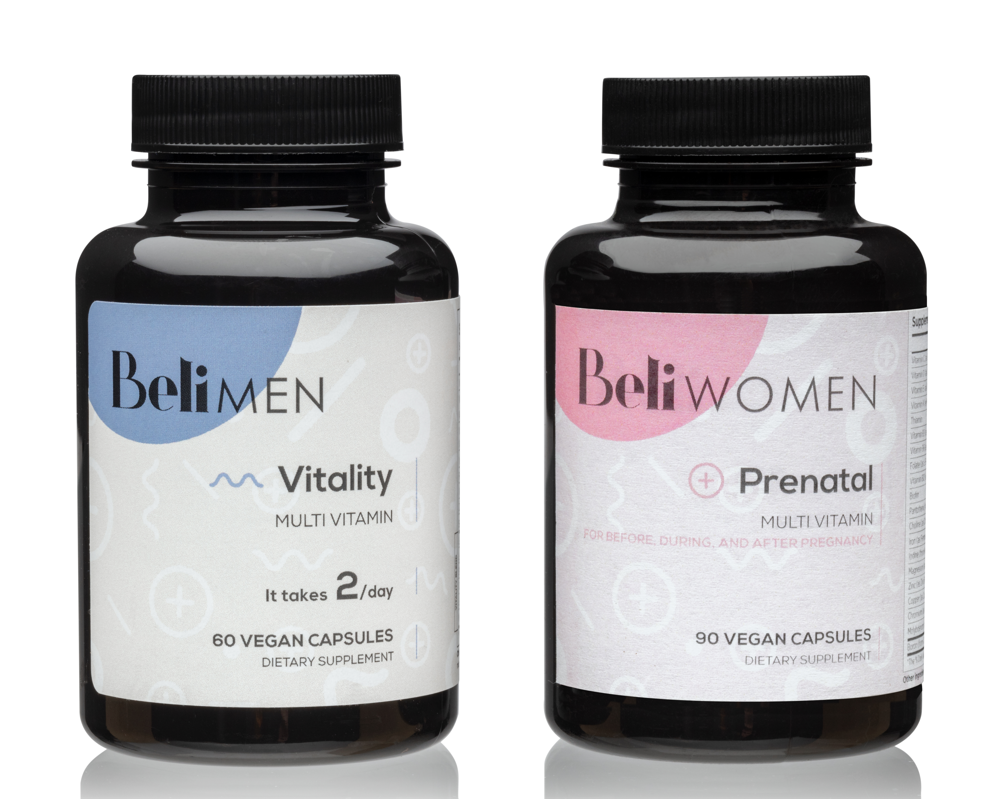When Sarah and Mark decided to start their family, they imagined a straightforward journey—timing ovulation, making healthier meals, and preparing their home for a baby. But after a year of trying with no success, they found themselves sitting in a fertility specialist’s office, learning something they never expected: their weight was playing a bigger role in their fertility struggles than they thought. Mark’s BMI was affecting his sperm health, while Sarah’s hormonal balance and ovulation were being impacted by her own weight challenges.
That revelation shifted their focus from blame and frustration to teamwork. With small changes—like adding daily walks, cooking balanced meals, and losing a modest 10% of their body weight—they saw major improvements. Six months later, Sarah was pregnant.
Sarah and Mark’s story isn’t unique. Many couples don’t realize that weight—both too high and too low—can directly impact fertility. From hormonal imbalances to sperm health and implantation, weight is a critical factor in conceiving. This blog will explore how weight influences fertility, backed by research, and provide actionable steps to optimize your chances of growing your family.
Key Takeaways:
- 12% of infertility cases are related to weight issues, affecting both men and women (Source: The American Society for Reproductive Medicine, 2017).
- Losing just 5-10% of body weight can restore ovulation and improve sperm quality in many cases (Source: Fertility and Sterility, 2016).
- Couples where both partners are obese have a 50% lower chance of conception compared to couples in a healthy weight range (Source: Journal of Human Reproduction Science, 2018).
- Fertility issues tied to weight are modifiable—small, sustainable changes can lead to big results.
The Balancing Act: Why Weight Matters
Weight and fertility share a delicate balance. For women, both too much and too little body fat can disrupt hormones, egg quality, and the uterine environment. For men, excess weight affects testosterone levels, sperm health, and DNA integrity. Achieving a healthy weight isn’t about perfection—it’s about creating the best environment for conception and pregnancy.
The Facts for Women:
-
Hormonal Imbalances: Body fat produces estrogen, and too much or too little can disrupt ovulation.
- Stat: Women with a BMI under 18.5 or over 30 are 27% less likely to conceive within a year (Source: Harvard T.H. Chan School of Public Health).
-
Egg Quality and Ovulation: Excess fat tissue releases inflammatory chemicals called adipokines, which harm egg quality.
- Stat: Obese women undergoing IVF have a 26% lower chance of success than women with a healthy BMI (Source: Human Reproduction, 2018).
-
Uterine Environment: Obesity can lead to inflammation in the uterus, reducing the likelihood of embryo implantation.
- Stat: Women with a BMI over 30 have a 68% higher risk of miscarriage (Source: University of Southampton, 2021).
The Facts for Men:
Fertility isn’t just about women. Men’s weight plays an equally critical role.
-
Sperm Quality: Obesity reduces testosterone levels, leading to poor sperm production.
- Stat: Obese men are 42% more likely to have low sperm counts (Source: Fertility and Sterility, 2016).
-
DNA Damage: Excess weight increases oxidative stress, damaging sperm DNA and reducing fertility.
- Stat: A 2019 study found that every 20 pounds of excess weight reduces male fertility by 10% (Source: National Library of Medicine, 2019).
- Impact of Weight Loss: Losing just 15% of body weight can improve sperm motility by 40% (Source: Clinical Endocrinology, 2020).
The Weight-Fertility Domino Effect
When both partners face weight challenges, the impact compounds. Studies show that couples where both partners are obese have a 50% lower chance of conception than couples in a healthy weight range (Source: Journal of Human Reproduction Science, 2018). This highlights the importance of teamwork in addressing weight as a factor in fertility.
Small Changes, Big Results
The good news? Weight is one of the most modifiable factors in fertility. A 5-10% reduction in body weight can restore ovulation in women and improve sperm health in men. Here’s how couples can work together to achieve a healthier weight:
For Women:
- Focus on Balanced Nutrition: Eat nutrient-dense foods like leafy greens, lean proteins, and whole grains.
- Healthy Fats: Include omega-3 fatty acids from fish, walnuts, and flaxseed to support hormonal balance.
- Stay Active: Engage in moderate exercise like walking, swimming, or yoga—activities that improve fitness without overstressing the body.
For Men:
- Boost Antioxidants: Include more fruits, vegetables, and nuts to combat oxidative stress.
- Prioritize Supplements: Nutrients like zinc, selenium, and antioxidants can protect sperm DNA and improve motility.
- Adopt an Active Routine: Regular exercise helps regulate testosterone levels and improve sperm production.
Real Stories, Real Motivation
Sarah and Mark’s success was no accident. Small, consistent changes made all the difference in their journey to parenthood. And their story isn’t the only one:
- A man who lost 20 pounds saw a 30% improvement in sperm motility, helping him and his wife avoid costly IVF treatments.
- A woman diagnosed with PCOS focused on losing 10% of her body weight, which restored her cycle and helped her conceive naturally.
Did You Know?
- Losing just 10 pounds increases a woman’s chance of conception by 10% (Source: American Society for Reproductive Medicine, 2017).
- Women with a BMI over 30 have a 68% higher risk of miscarriage (Source: University of Southampton, 2021).
- Underweight women are 4x more likely to experience anovulation (Source: WHO, 2021).
- Men with a high BMI face higher rates of sperm DNA fragmentation, which increases miscarriage risk (Source: Fertility Research and Practice Journal, 2021).
Take the Next Step Together
Weight and fertility are intricately linked, but they are not insurmountable barriers. The key is teamwork—recognizing that small, consistent lifestyle changes can transform not just your chances of conception but also your long-term health.
Want to optimize your fertility journey? Explore Beli Preconception Boost for Women and Beli Vitality for Men, specially designed to support hormonal balance, egg quality, and sperm health for couples looking to start their family.
Footer of Sources:
- American Society for Reproductive Medicine (2017). "Obesity and Infertility: Overview."
- Fertility and Sterility (2016). "Weight Loss and Fertility Outcomes."
- Harvard T.H. Chan School of Public Health. "BMI and Conception Rates."
- Human Reproduction (2018). "Obesity's Impact on IVF Success Rates."
- University of Southampton (2021). "BMI and Miscarriage Risk."
- National Library of Medicine (2019). "Obesity and Male Fertility."
- Clinical Endocrinology (2020). "Weight Loss Effects on Male Sperm Motility."
- Journal of Human Reproduction Science (2018). "Couples’ BMI and Fertility Challenges."
- WHO (2021). "BMI and Reproductive Health: A Global Perspective."
- Fertility Research and Practice Journal (2021). "Oxidative Stress and DNA Fragmentation in Male Obesity."





